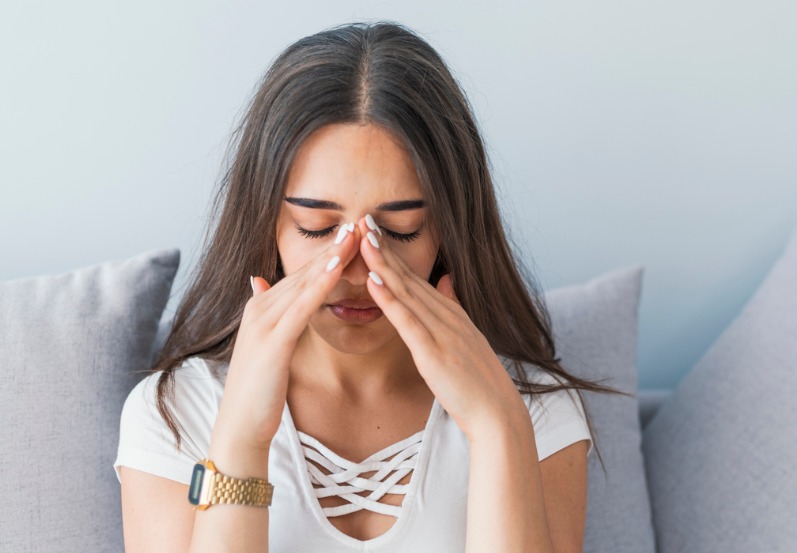What You Should Know About Pet Allergies

Do you have pets and find yourself sniffling constantly? It’s a good idea to learn about pet allergies, how they work, and how to manage them.
Ideally, those with animal allergies should not have pets. But let’s be real – you’re not going to part with your unconditionally loving side-kick, and we understand that. Learn how to manage your pet allergy so that you can lead a healthy and happy life with your furry companion.
Symptoms of An Pet Allergy:
- Runny nose
- Nasal congestion
- Sneezing
- Postnasal drip
- Facial pressure and pain
- Cough
- Itchy, red, or watery eyes
- Itchy nose, throat, or roof of the mouth
- Waking frequently throughout the night
- Swollen, blue-colored skin under the eyes
- Skin conditions (hives, eczema, itchy skin)
If you have asthma or allergic asthma, an animal may trigger asthma symptoms, such as:
- Difficulty breathing
- Chest tightness and/or pain
- Whistling or wheezing sound when exhaling
- Trouble sleeping caused by shortness of breath, coughing or wheezing
How Do Pet Allergies Happen?
It’s not just in their fur – allergens are present in their skin cells (dander), saliva, urine, and sweat. These particles are microscopic and can remain airborne for long periods of time, spreading all over your home. Pet saliva can stick to carpet, bedding, furniture, and clothing. If it’s left to dry, it can become airborne.
Let’s get to the bottom of ‘hypoallergenic pets’ – there is no such thing. Although these breeds may shed less, their allergens will still be spread throughout the home and precautions should still be taken.
Management & Treatment
There are several types of medications that can manage your pet allergies, which should be prescribed by a doctor. These include:
- Antihistamines
- Corticosteroids
- Decongestants
- Leukotriene modifiers
If medications have not helped you control your allergy symptoms, talk to your doctor about immunotherapy. This is a process that trains your body to become less allergic to a substance over time. It has been extremely effective for people with all types of allergies.
How Does Immunotherapy Work?
Your doctor will run an allergy test and get to the bottom of what exactly is causing your allergy. Afterward, they will come up with a personalized immunotherapy plan for you. This consists of a series of injections over a 3 to 5 year period. Although this treatment method takes a long time, it has the power to cure your allergies! As they say, good comes to those who wait.
The doctor will begin with 1 to 2 shots a week. The dosage is gradually increased over a 4 to 6 month period. You will reach a point where you are symptomless to your allergen, meaning your allergies are cured. At this point, you will still need to continue with the treatment, but at a lesser frequency. You will need to receive maintenance shots every 4 weeks for 3 to 5 years.
The frequency of injections and the total length of treatment varies on the individual. However, immunotherapy is an extremely potent solution to unbearable and seemingly untreatable allergies that can significantly improve your quality of life.
In The Meantime…
- Bathe them frequently. Wash your animal on a weekly or biweekly basis. Once they are clean – bathe yourself! Be sure to scrub all the pet allergens off your skin that inevitably ended up on you during the bathing process. After all, pets aren’t easy to bathe.
- Use HEPA filters. Use only high-efficiency particulate air purifiers, vent filters, and vacuums. This type of filter seals in allergens and prevents them from leaking into the air you breathe.
- Avoid carpets and upholstery. Allergens love fabric fibers, so don’t give them a chance to settle into your home. Replace your carpets with hard flooring and replace any upholstered furniture (if possible). This can be pricey, so small steps are the way to go. If you have small things like rugs and curtains around your home, that’s a great place to begin.
- Establish a pet-free zone. Make at least one room in your home a pet-free zone. As hard as it may be, the bedroom is the best place to do this. It is extremely important to have a place you can go when severe allergy symptoms act up.
Don’t silently suffer from your allergies – kick them to the curb! Call the experts at NY Allergy & Asthma today at (212) 517-3300 or make an appointment online.











